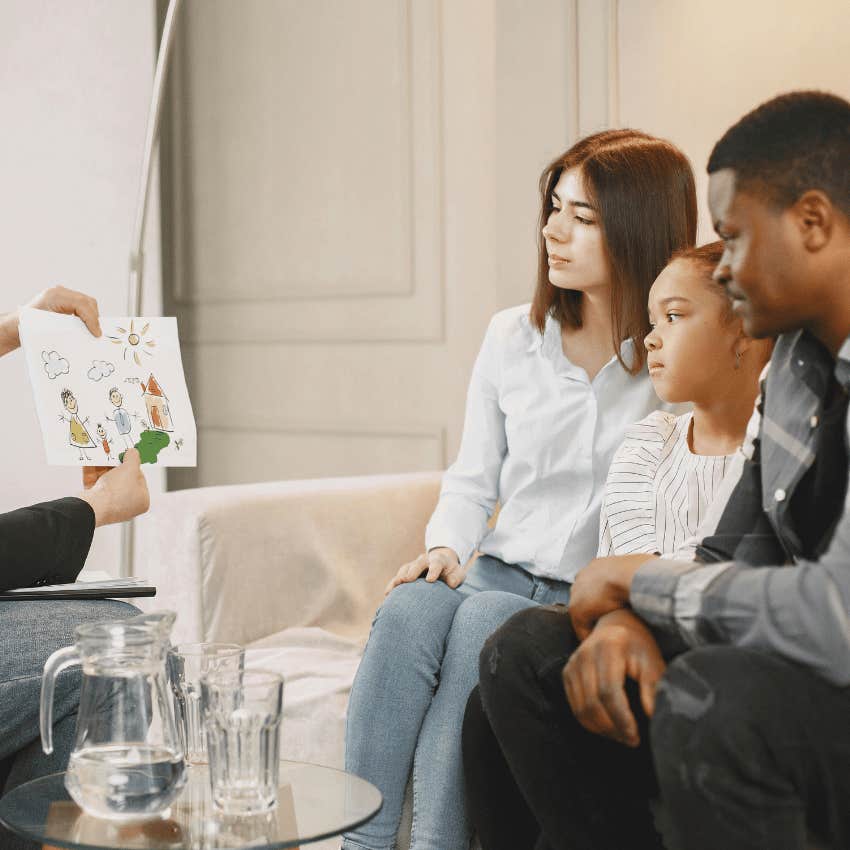My mom told me many times a story that concluded, “It was the best twenty-five dollars I ever spent.” What was the story?
My brother was in 6th grade at the time and had frequent stomachaches. When my mom took him to the pediatrician, the doctor suggested my parents make an appointment with a psychologist. My parents didn’t understand why, but they trusted their pediatrician, so my parents and my brother spoke with said psychologist. What did my mom learn?
My brother was an excellent student. He shared top billing with another student whose name was Barry. When my brother would come home from school and report his test scores, my mom would typically ask two questions:
- “What did you miss?” Since my brother usually scored in the high nineties on his tests, it might have been only one question that he missed. The answer was easy on one level. Emotionally, though, there was some collateral damage.
- “What did Barry get?” My mom was expressing a competitive instinct that wasn’t her finest hour. It’s good to know that even our heroes have their unfine hours.
Every time my mother shared the story of the visit to the psychologist, she would hang her head in shame. My response was always, “Look how you self-corrected.” After they visited the psychologist, my parents changed their style and never asked those questions again. My brother’s stomachaches went away.
For the rest of my siblings and me, it would be a lesson in parental self-discipline and having a ‘so what’ attitude for the good of our kids.
I’m certain my mom’s instincts were still there, but she controlled them. As a parent, I think about this story because I often notice the stress of my kids, who are now in their early thirties, and I want to ask them a different question, but one that relates: “So what?”
It’s another version of my brother’s sixth-grade experience. What if you don’t get everything right? What if you are not a production machine? What if you have to take time off to figure out the next steps? What if your creativity engine is taking a break?
The consequence of pushing ourselves so hard is significant: we focus more on the pace than the direction, and we risk burnout. We might be moving so fast and without proper consideration that we arrive where we don’t want to be.
 Gustavo Fring | Pexels
Gustavo Fring | Pexels
Research shows that parental pressure, whether direct or indirect, can take a major toll on kids’ psychological well-being. Some of the most common effects include depression and negative self-talk, eating disorders and body image issues, academic underperformance, and social withdrawal.
Journalist, Harvard graduate, and parenting researcher Jennifer Breheny Wallace has a suggestion: change what you ask your kids when they walk through the door after school every day. A survey of 6,500 parents she conducted along with Harvard researchers showed that not only is parents’ achievement anxiety catching, but when parents always lead with schoolwork-related questions, kids learn that what their parents care about is their achievements, not them.
When my kids were in elementary school, I always asked them the same question when they arrived home. “Did anything make you laugh today?”
It may seem silly or unserious, but I believe it led them to develop an appreciation of humor — a personal quality that remains high on my list of survival skills.
But now in their thirties, my question has changed.
“So what?”
Can “so what?” help to reduce their self-imposed or even externally imposed pressure? Can they downsize their expectations? Can they relax and experience the pleasure of just “being?”
Going back to the lesson of my mom’s best-spent twenty-five dollars, is there a “Barry” in their world that they need to forget about? In college, I took an incredibly difficult class — thermodynamics — which I wasn’t even sure I’d pass. The teacher was known throughout the university as “Crazy Joe.”
What earned him that name? It was his unorthodox approach. He believed that it didn’t matter when you learned the material. It only mattered that you learned thermodynamics sometime during the semester. He reasoned that was how we learn—not linearly but in unpredictable spurts.
Because of this view of learning, Crazy Joe said that if we got “C’s” on his tests throughout the semester but did well on the final, he would take that to mean that the knowledge finally kicked in and grade us based on our final.
It was his way of showing that Crazy Joe cared that we learn, not when. This was exactly what happened to me. Somewhere along the way, I understood the material, and my C’s were overridden by my “A” on the final.
I think “Crazy Joe” was actually “Brilliant Joe.” He permitted me to process my world naturally and organically.
I hope to help my children understand how to process the world organically, and I hope that the question, “So what?” sets them on that path.
If so, it won’t be a story of the best twenty-five dollars I spent, but maybe the best question I asked.
Jill Ebstein is a journalist for InsideSources, author of a fictional series, “Alfred’s Journey to Be Liked,” and editor of “At My Pace” series. She founded SizedRight Marketing, a consulting firm that captures the “voice of the customer” for clients.

